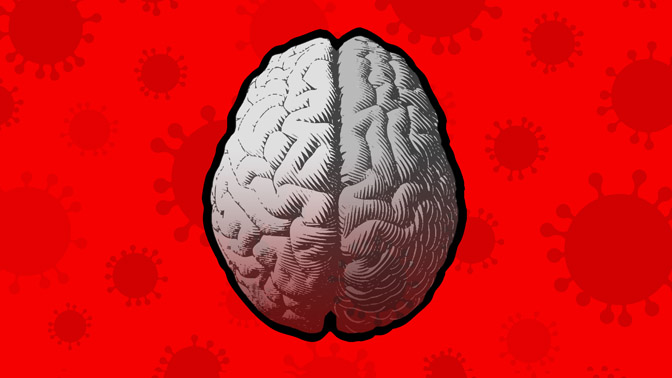
Drs. Patrick Nicholson, Laila Alshafai and Timo Krings, neuroradiologists at UHN’s Toronto Western Hospital, recently revealed new details on how COVID-19 may affect the brains of certain individuals.
In a short preliminary case series, the research team observed evidence of internal bleeding and clotting in the blood vessels of the brain of four individuals with severe COVID-19.
All four individuals were unable to breathe on their own. One individual was on a mechanical ventilator, and three others were on an extracorporeal membrane oxygenation (ECMO) machine—a device that delivers oxygen directly to the blood.
All of the patients displayed new symptoms such as weakness or drowsiness—this was the initial reason why brain imaging was carried out. Images of the brains of patients were taken using advanced techniques to reveal the detailed structure of blood vessels and soft tissues. These techniques included computerized tomography and magnetic resonance imaging (MRI).
The team identified a number of abnormal features in the brain scans, including small areas of localized bleeding. In other areas, they found evidence of clotting in small blood vessels in the brain. The researchers note that these abnormalities could point to a condition known as thrombotic microangiopathy. Other case studies have suggested that COVID-19 can infect and damage cells that line blood vessels, which may help explain the bleeding that was observed.
Certain limitations exist in this study. For example, the number of patients is very limited and the use of ECMO may also contribute to bleeding in the brain, which could confound results.
In summarizing the implications, the team urges clinicians to be extra vigilant when screening individuals with COVID-19. Dr. Nicholson says, “Use of medical imaging, such as MRI, for those with changes in behaviour or consciousness, may be key to the early detection and treatment of brain bleeds in those with COVID-19.”
Nicholson P, Alshafai L, Krings T. Neuroimaging Findings in Patients with COVID-19. American Journal of Neuroradiology. 2020 May. doi: 10.3174/ajnr.A6630.




